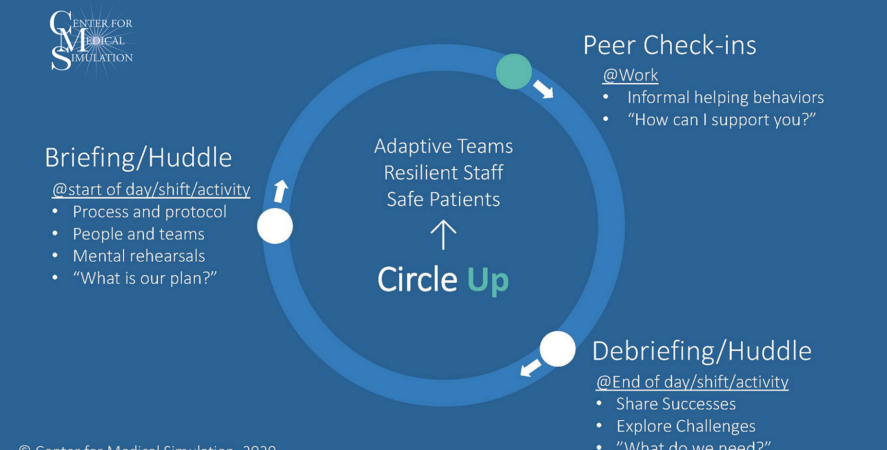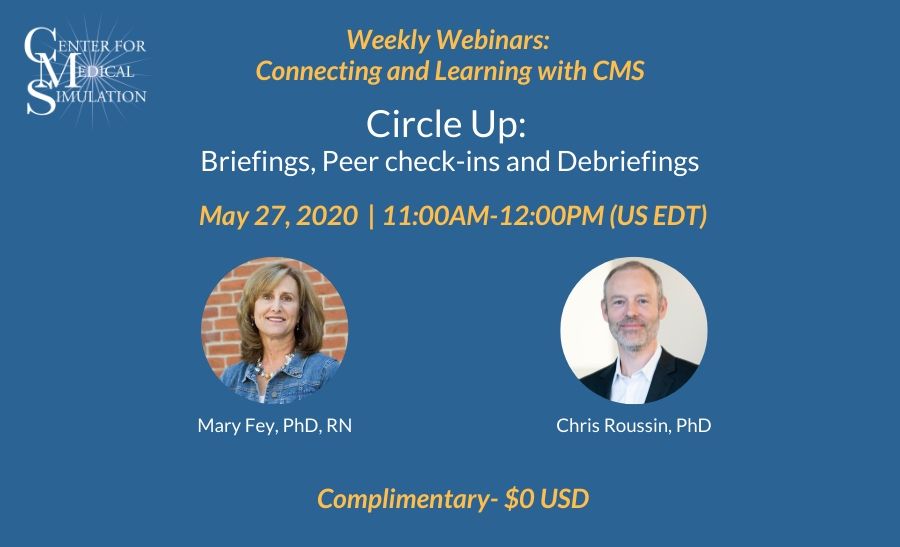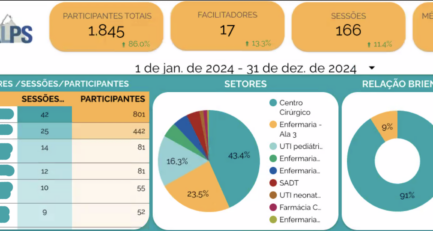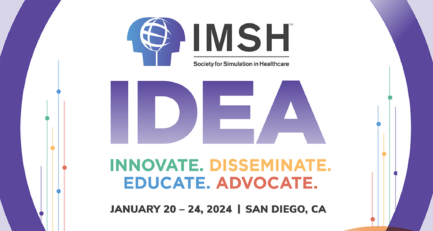
In addition to managing the stress of a global pandemic, frontline workers battling COVID-19 are working with limited personal protective equipment (PPE). The shortage of adequate supplies has been a major issue for healthcare teams worldwide during the crisis. With the collective focus primarily on physical PPE, the importance of proactive psychological protection and support for care staff has been overlooked.
“Without psychological health among clinicians, sustained high-quality care is simply an impossible goal. We need proactive approaches to supporting psychological well-being for now and for the long-term,” explains Chris Roussin, PhD, Senior Director of Education Leadership and International Programs at the Center for Medical Simulation (CMS).
With expertise in communication, collaboration, and crisis management, the CMS Leadership Team began brainstorming ways to support the psychological well-being of healthcare teams during the COVID-19 pandemic.
“Emotions are real, they are ever-present, and excessive negative emotion (anxiety, stress, worry) can significantly impair our ability to make good clinical decisions. Just acknowledging them & naming them can help to minimize their effects,” says Mary Fey, RN, PhD, Senior Director of Teaching and Learning at CMS.
CMS’ work led to the development of Circle Up, a system of team briefings, check-ins, and debriefings that help support resiliency during times of crisis. Chris Roussin and Mary Fey formally introduced Circle Up to the world during a free webinar in April. The event was attended by over 70 participants from around 20 different countries.
“The response to Circle Up has been, ‘how can we do this immediately?!’ says Dr. Roussin. “It is an elegant system that attempts to fill an important need at a critical moment.”
The positive response to Circle Up has led to the system being adopted by care teams in Boston and throughout the world. Dr. Fey gives an example of how the tool is already helping clinicians:
“One of the elements of a Circle Up Briefing (at start of shift) is an explicit invitation for people to speak up if they see something out of order. A Boston anesthesiologist reported many instances in which team members spoke up when they saw someone about to do a high-risk procedure (intubation) with inadequate PPE. This allowed the clinicians to protect themselves and avert potentially exposing themselves to infection.”
CMS is currently supporting clinicians and organizations in using Circle Up for peer support and workflow adaptation through training, toolkits, and advisory services in Boston, Belgium, Spain, France, Australia, Hong Kong, Brazil. Two CMS Affiliate Locations, the Hospital virtual Valdecilla in Spain and Master Education Institute President Antônio Carlos (IMEPAC) in Brazil, have also hosted Circle Up webinars to help educate users about the tool. So far, Circle Up has been translated into Spanish and French.
“Circle Up is giving people and teams opportunities to improve shift-by-shift and day-by-day. Even hour-by-hour. The positive outcomes range from quality and process improvements to community-building and expressions of warmth and support among stressed clinicians,” says Dr. Roussin.
Although early adopters of Circle Up have been clinical groups, the system has the potential to help teams outside of the medical field as well.
“Any group that needs to coordinate their activities can use it. It’s a system for communication that is built on the philosophy that teams work better when they openly communicate important information and support each other on a human level. That works for any team anywhere,” explains Dr. Fey.
Mary Fey and Chris Roussin hosted a one-hour Circle Up webinar on May 27, 2020. To view the session on-demand, please visit: https://harvardmedsim.org/resources/weekly-webinars-may-27-2020-circle-up/
If you are interested in learning more about Circle Up, please visit https://harvardmedsim.org/circleup/.


